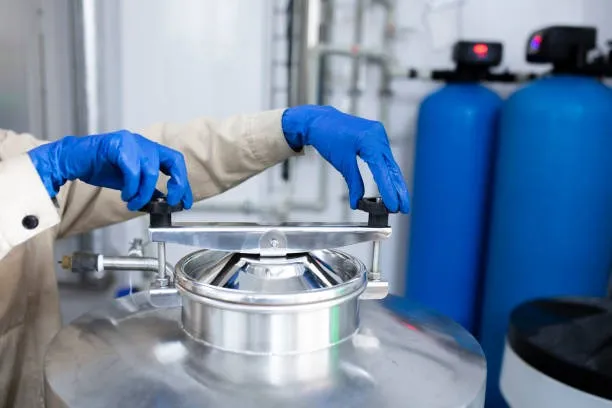
Boiler Tune-Up in Columbia, PA
A comprehensive boiler tune-up in Columbia, PA keeps your home warm, safe, and energy-efficient throughout the long cold season. Columbia’s older homes, river-valley drafts, and cold Pennsylvanian winters put extra stress on boilers and hydronic systems. A detailed annual tune-up identifies small problems before they become emergency repairs, restores proper combustion and controls, and improves comfort and reliability when you need it most.
Why a Boiler Tune-Up Matters in Columbia, PA
Columbia and the surrounding Lancaster County area see extended periods of below-freezing temperatures and low overnight temps that make heating systems run harder. Many local homes still use cast-iron boilers and radiator systems that benefit from regular cleaning, combustion checks, and water treatment. Neglecting maintenance can mean higher fuel bills, uneven heat, leaks from corroded fittings, and safety risks like elevated carbon monoxide or failed safety devices.
Common Boiler Problems in Columbia Homes
- Sooted or clogged burners reducing efficiency and creating incomplete combustion
- Incorrect combustion settings producing high CO or wasted fuel
- Malfunctioning thermostats, aquastats, or control relays causing short cycling or poor temperature control
- Rust, scale, or leaks in heat exchangers, pump seals, or piping—especially in older systems
- Stuck or noisy circulator pumps and air-bound radiators that reduce heat distribution
- Faulty safety devices (pressure relief, low-water cutoffs) that compromise safe operation
What a Comprehensive Boiler Tune-Up Includes
A full tune-up is more than a quick inspection. The technician follows a methodical checklist to restore safe, efficient performance.
- Visual inspection of boiler and surrounding area
- Check for corrosion, visible leaks, proper clearances, and chimney or vent integrity
- Burners and ignition system cleaning
- Remove soot and deposits, clean or replace electrodes, adjust flame pattern and air/fuel mix
- Combustion analysis and flue draft check
- Measure oxygen, carbon monoxide, and stack temperature to confirm safe, efficient combustion and proper venting
- Thermostat and control calibration
- Verify thermostat response, aquastat settings, and control logic; adjust differentials and setpoints for consistent comfort
- Pressure, expansion tank, and safety device testing
- Test pressure relief valves, gauge accuracy, and low-water cutoffs; inspect expansion tank and fill pressure
- Leak and corrosion assessment
- Inspect heat exchanger, valves, unions, circulator pump seals, and piping for signs of leaks or deterioration
- Circulator and pump service
- Lubricate bearings (if serviceable), check pump electrical connections, and verify proper flow and bypass operation
- System flushing and air purging (as needed)
- Bleed radiators and purge air to restore balanced circulation and eliminate noisy operation
- Performance documentation and recommendations
- Provide a summary of measured combustion readings, pressure and temperature baselines, and any recommended repairs or parts replacements
What Combustion Analysis Shows and Why It’s Critical
Combustion testing measures oxygen, carbon monoxide (CO), and stack temperature to confirm the boiler is burning fuel cleanly and safely. Incomplete combustion can lead to dangerous CO production and wasted fuel. A tuned burner with proper draft reduces fuel use and extends component life. In Columbia’s older chimney systems, draft checks help avoid flue gas spillage during cold, calm conditions.
Expected Results After a Tune-Up
- Improved fuel efficiency and lower heating costs through optimized combustion and cleaner burners
- More reliable starts and fewer unexpected breakdowns during cold snaps
- Even, quieter heat distribution as air is purged and pumps flow properly
- Safer operation with tested safety devices and verified combustion values
- Extended equipment life by reducing corrosion, soot buildup, and unnecessary cycling
Recommended Service Frequency
- Annual comprehensive tune-up: recommended for most residential boilers, ideally in late summer or early fall before heating season.
- Semi-annual service: consider for older boilers, high-use systems, or homes with known issues (frequent low-water events, repeated leaks, or older controls).
- Immediate inspection: if you notice persistent soot, unusually high fuel bills, strange odors, visible leaks, or any CO alarm activation, have the system checked right away.
Practical Tips to Optimize Boiler Performance Between Tune-Ups
- Bleed radiators once per season to remove trapped air and improve circulation.
- Keep the boiler room clear to maintain proper airflow and service access.
- Insulate exposed hot water piping and valves in unheated spaces to reduce heat loss and freeze risk.
- Monitor fuel usage and indoor temperature patterns—sudden changes can signal a developing problem.
- If your home has hard water, consider periodic water treatment or chemical cleaning to reduce scale on heat exchangers.
What to Expect During a Tune-Up Appointment
A typical residential boiler tune-up in Columbia runs about 60 to 90 minutes depending on system complexity. Technicians will need clear access to the boiler, controls, and radiators. Expect measured readings (CO, O2, stack temp) to be recorded and a written summary of findings and recommended next steps. If repairs are needed—such as replacing a pressure relief valve, circulator, or ignition components—these are documented separately so you can decide how to proceed.
Choosing Local Service and Seasonal Timing
In Columbia’s climate, scheduling a tune-up before the first sustained cold spell ensures safe, efficient operation when demand is highest. Local technicians understand regional issues like older masonry chimneys, freeze risk near the Susquehanna River, and the maintenance needs of cast-iron boiler systems. Regular, documented maintenance also helps protect your home and can support insurance or warranty requirements.
A comprehensive boiler tune-up in Columbia, PA restores efficiency, improves safety, and reduces the risk of inconvenient winter breakdowns. Annual inspections and a proactive maintenance routine keep your heating system dependable and efficient for seasons to come.


Enjoy flexible financing options that make upgrading or repairing your HVAC system easy and budget-friendly.










